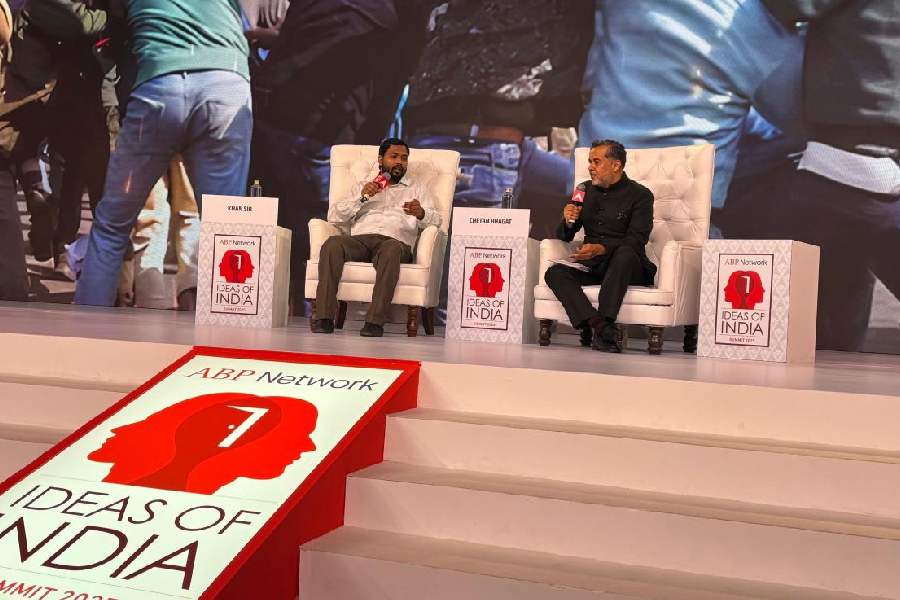Paper leaks, steep fees and a centralised examination process are weakening the foundation of the country’s education system, said educator-activist Faizal Khan, aka Khan sir, on Day 2 of ABP Network’s Ideas of India Summit 2025 here on Saturday.
“Paper leaks could be a bigger scam than Commonwealth Games,” the Patna-based educator, founder of Khan Global Studies and a popular YouTuber said.
Khan also flagged the stark contrast in medical college fees charged by government and private institutions. “Government colleges charge minimal fees, making education accessible. However, private institutions demand such high fees that students prefer buying leaked exam papers instead of spending lakhs on tuition. Education is so expensive in India that students are flying abroad,” he said during a conversation with author-columnist Chetan Bhagat.
Bhagat brought up the National Eligibility cum Entrance Test (NEET) conducted by the National Testing Agency (NTA) and wanted to know whether a centralised examination structure increased the risk of irregularities and scams.
“There are around 30,000 seats… Now, a single authority has been set up to conduct tests across India. It is a well-intentioned authority but several individuals inside the system have access to exam papers. Even if irregularities occur in 10 per cent of the available seats and a single paper is sold for anything between ₹30 lakh and ₹50 lakh, it translates to an income of ₹1,000-1,500 crore. This might not appear as a large-scale scam like the Commonwealth Games but, in reality, it could be even bigger…. So, isn’t there a high chance of a paper leak?” Bhagat asked Khan.
“Definitely,” Khan said, building a case for a transparent and federal examination structure.
“I don’t understand one thing. Our Constitution favours a federal structure and speaks for decentralisation of power. Then why are we centralising the examination process? On the one hand, you are saying decentralisation is necessary to govern the country effectively. Yet, on the other hand, you centralise exams and risk students’ futures,” he said.
Khan said education must go beyond academics and urged students to focus on employability. “We should acquire a new skill every year — be it driving or anything useful. The right skill set makes a person employable,” he said.
“Every student must learn a skill, regardless of their course, to build a stable future,” he said, stressing the need for practical education, systemic reforms and skill development to prepare the youth for real-world challenges.
Highlighting the shortcomings of ed-tech companies, he said: “These platforms offer features, but education needs both teachers and features.”
Khan has been at the forefront of protests over the cancellation of the 70th Combined Competitive Examination (CCE) held by the Bihar Public Service Commission (BPSC) in December last year.
The exam is under intense scrutiny because of allegations of a paper leak.
In December, Bihar police had lodged an FIR against Khan Global Studies in connection with the agitation against the BPSC.










